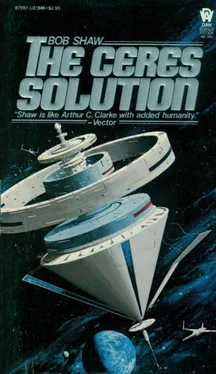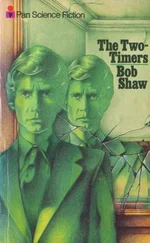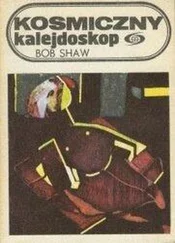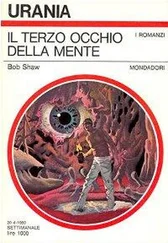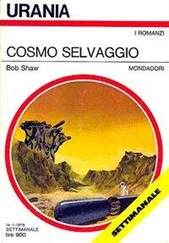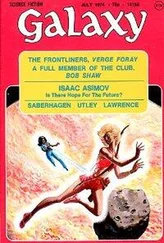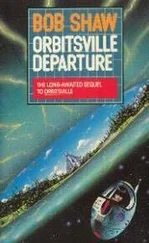“I ought to sue this character Barren. Better still, I should kick his balls up into his throat.” Hargate took hold of his right trouser leg and raised one inert foot from the step of his chair, wondering why he was going into one of his set pieces in front of a man who was unlikely to be embarrassed.
“Maybe you’ll get your chance—they’re holding him right here in KSC in the International Condominium,” Costick said. “I don’t think they know what to do with him.”
“Him and me both.”
Costick glanced at his watch. “That’s not the case, Mr Hargate.
I’m going to put you into the hostel for a night or two—at our expense, of course—and that will give you time to have a long talk with our senior placement officer.”
“I’ll look forward to that,” Hargate said drily. Within an hour he had been installed in an architecturally unadventurous building which looked as though it had been designed as tourist accommodation back in the days when NASA still believed that Aristotle was only the forerunner of an expanding series of space colonies. It had been reactivated to house the pitiful brigade of which Hargate was a member—the invalids and the chronically ill, whose abrupt return to Earth was sending ripples of annoyance and inconvenience from one side of the country to the other. Hargate did not know whether to be relieved or disappointed over the fact that he had no relatives who would have played sullen games of pass-the-parcel with his reincarnated presence and all the attendant responsibilities. It would have been amusing, for a while anyway, to bowl unannounced on to somebody’s patio with a cheery wave. Hi, gang! I’m back…
He chose to dine in his room, and found the meal almost more trouble than it was worth. The return to full gravity had made drinking particularly difficult. Before finishing his coffee he had soaked the table napkin with fluid regurgitated through his nose, and had been forced to bring extra tissues from the bathroom. In spite of all his caution, a few drops of the coffee found their way into his bronchial tract and, due to a new difficulty he was having with coughing, he spent twenty minutes after his meal in weak heaving and choking which left him exhausted. During that time it grew dark outside the room’s single window and he found his thoughts returning to the intriguing, repulsive-attractive idea which had occurred to him in the afternoon. He was not suicidal, he decided on analysis of his feelings—it was simply that he could see some advantages in being dead.
The male attendant who came to remove the tray reproved him for sitting alone in the darkness, and after being startled by the caustic nature of Hargate’s response took some measure of revenge by switching on the wall television, unbidden, on his way out. Hargate, swearing bitterly, propelled himself towards the remote control and was on the point of killing the picture when he realised that the tired-looking, stubble-chinned young man on the screen was actually Phil Barren, astronautical engineer extraordinary, perpetrator of history’s most expensive single act of vandalism, author of all Hargate’s current troubles. Barren, whose black curly hair was prematurely receding, looked angry rather than contrite, and deep indentations which kept appearing at the corners of his mouth suggested he was aggrieved by what the interviewer was saying. Hargate turned up the volume control.
“…of people talking about this super-laser I’m supposed to have had,” Barren said. “What super-laser? I never heard of weapons like that, and even if they did exist somewhere—how would I have gotten hold of one?”
“It has been suggested,” the unseen interviewer put in, “that it came from an Eastern Bloc country.”
“That, if you will forgive me saying so, is crap.” Barron moved restlessly, highlights on his forehead turning into blue-white shimmers. “I’ve been through every loyalty check there is, and…and…Know what? This business makes me look stupid . If I had wanted to sabotage Aristotle I could have done it far better with one stick of dynamite and a timing clock. I wouldn’t have risked getting my head burned off—and you can bet your life I wouldn’t have made up that character in the funny spacesuit.”
“Oh yes—the incredible vanishing Martian.”
“I didn’t say anything about a Martian,” Barron said doggedly. “All I said was that he vanished.”
“You’re positive he was there in the first place?”
Hargate, prompted by a stirring in his subconscious, increased the volume and leaned forward, scarcely breathing, as Barron wearily recounted how a figure in a silver-and-gold spacesuit had appeared in space near the colony’s end-cap and had destroyed equipment worth millions of dollars with an unknown type of energy weapon. The story was an incredible one, quite unbelievable, and yet a small boy called Denny Hargate had once learned something very important about the hidden side of reality.
“And that’s all there was to it,” the television reporter said. “This spacesuited figure simply vanished?”
“Well…” Barron had begun to speak slowly, as though examining his own testimony for flaws. “Before it actually disappeared it seemed to give some kind of a…I guess you’d have to call it a signal.”
“It waved goodbye to you.”
Barron ignored the facetiousness. “Perhaps it was more like a sign. He did something like this…” Barron raised his right hand and hesitantly traced a curve in the air. “Then he wasn’t there any more.”
Hargate, whose heart had begun an irregular pounding, sat back in his chair and thought of the girl, the beautiful and magical girl, he had seen twenty years earlier in a secret place to which he had never been able to return.
The policeman at the main entrance was in his mid-twenties—old enough to have acquired breadth of shoulder and an air of having seen all there was to see; young enough to have retained a peachy smoothness of complexion. His tobacco-coloured uniform was neatly pressed and its multi-hued roundels, reminiscent of historic astronauts’ badges, glowed like jewelry. He stared down at Hargate with amused incredulity.
“I’m sorry, sir,” he said. “There’s just no way you could get in to see detainee Barron without a special permit.”
“I’m very glad to hear that—the Centre’s finest would be falling down on the job if it allowed just anybody to walk in off the street and have access to dangerous criminals.” Hargate surveyed the bronzed glass foyer of the International Condominium’s police headquarters and nodded his approval. “Now, my reason for wanting to go inside is that I want to obtain one of those special permits you mentioned—so all you have to do is direct me to the appropriate room. Right?”
“Maybe. What’s your name?”
“Dennis R. Hargate.”
“And where are you from, Mr Hargate?”
“Until yesterday I was from up there.” Hargate pointed one finger skywards. “I’m a drop-out from Aristotle.”
“I see,” the policeman said doubtfully. “What’s your business with Barron?”
Hargate, in spite of having resolved to keep his tongue in check, grew impatient. He had been totally unable to sleep during the night, had left the hostel without breakfast and had spent more than an hour searching for and reaching the police building. Now he was beginning to feel tired and ill.
“I just want to visit with him,” he said. “He’s allowed visitors, isn’t he?”
“I wouldn’t know about that.”
“In that case, why don’t we stop wasting each other’s time?” Hargate moved his drive control and tried to surge towards the inner doors, but the policeman—with an embarrassed glance towards several passers-by—caught the chair’s left armrest and slewed it round, forcing him to stop.
Читать дальше
